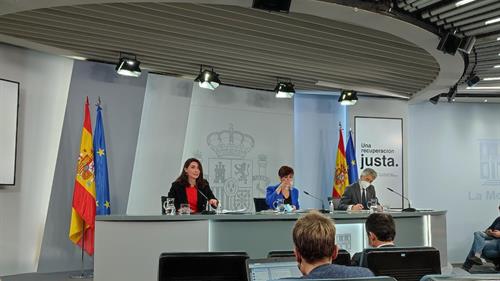From Estudio de Abogados Martín Villa & Asociados and Pulchra Legal we are informing our clients of the situation of the transposition of the EU Directive 2019/1937 of the European Parliament and the Council of 23 October 2019, known as Whistleblowing. The deadline for the transposition of the Directive expired last December 17 (we were by no means the only European country to do so extemporaneously, which is a consolation).
The Preliminary Draft Bill that responds to the transposition of the Directive was approved by the Council of Ministers on March 4 and seeks to protect people who report on regulatory infringements and corruption both in the Administration and in private companies.
What are the keys to the draft bill? What scenario do we find in companies? At Martín Villa Estudio de Abogados we have made a brief analysis.
As key points to highlight
*Disappearance of the word “whistleblower” and use of the term “informant“, which implies an important cultural change.
*Obligation to implement whistleblower channels in the public sector and in companies with 50 or more employees. In the public sector, public administrations that manage Social Security services, universities, companies and foundations that are part of the public sector, public corporations and all constitutional bodies, among others, will have to have an internal information system. All political parties, trade unions, business organizations, as well as the foundations that depend on them, as long as they manage public funds, will be obliged to have an internal information system.
*Extension of the material scope of the complaints not only to infringements of certain matters of Union Law, but also to labor regulations and the rest of the legal system as long as the general interest is undermined.
*Additional obligations appear, such as the designation of the person in charge of the Information System.
*Creation of documented policies and procedures for the management of complaints.
*The obligation to have a Data Protection Officer (DPO) for those entities obliged to have an internal communications system, as well as the external third parties that may manage it, as the case may be.
*The creation of the Independent Authority for the Protection of the Informant is proposed. Among its functions, we highlight the management of the external communications channel. This channel can be used by any natural person wishing to report a possible infringement, either after having reported it through the internal channel of an entity, or when directly using this external channel.
The scenario in the company
Companies must be aware that the whistleblowing initiative is not only limited to imposing the establishment of a channel (such as an e-mail) to report irregularities; additional technical and organizational measures must also be put in place.
Within the compliance channels in companies, whistleblowing channels that allow information to be obtained without putting the whistleblower at risk are of great importance. There is therefore a connection between whistleblowing and compliance, since the criminal liability of the company will depend on its collaboration in the investigation of the crime, being of great interest all those channels from which it obtains decisive information.
What would be the penalties?
Penalties of up to one million euros. The Draft Bill categorizes offenses into minor, serious and very serious, and for each case it determines a statute of limitations and a corresponding range of penalties. Very serious infringements will expire after three years; serious infringements will expire after two years; and minor infringements will expire after six months, counting this period from the day on which the infringement was committed.
In addition, in the case of very serious infringements, the Independent Authority for the Protection of Whistleblowers may impose further sanctions, including a ban on contracting with the public sector for a maximum period of three years.

Preliminary draft law (Download file)

